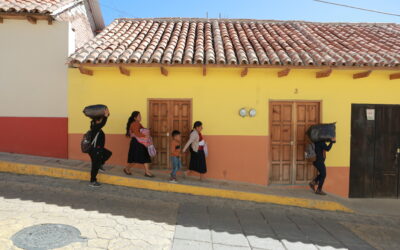1.4 Billion people live on <$1.25 every day
That’s 1 in 7 people on our planet – Surviving on less than the cost of a small coffee, a cheap slice, getting half-way there per day – If this is what you have to make it through each day, you’re not just poor, you’re ultra poor – in the bottom billion, the poorest of the poor, at the bottom of the pyramid, chronically hungry – you’re a woman, rural, affected by a disability – now, imagine that you’re her. – you have no productive assets, savings or security, formal education, access to healthcare or sanitation facilities – which means you’re extremely vulnerable – to hunger, illiteracy, disease, HIV, droughts, floods – and so are your kids. – and their kid, and their kids. – that’s where Trickle Up comes in – we identify a woman in extreme poverty – and help her start a business with training and capital in the form of a Spark Grant. Soon, she’s reaping the results of her hard work and invests with her savings group where she builds savings and plans for the future. – she’s flipped the equation – now she’s the solution – and much less vulnerable to floods, droughts, HIV, disease, illiteracy, hunger – and so are her kids, and their kids. You get the picture, right? – Now she has what she needs to build a better life: food security, financial security, assets and income, healthcare, sanitation, skills and training – that’s Trickle Up.


